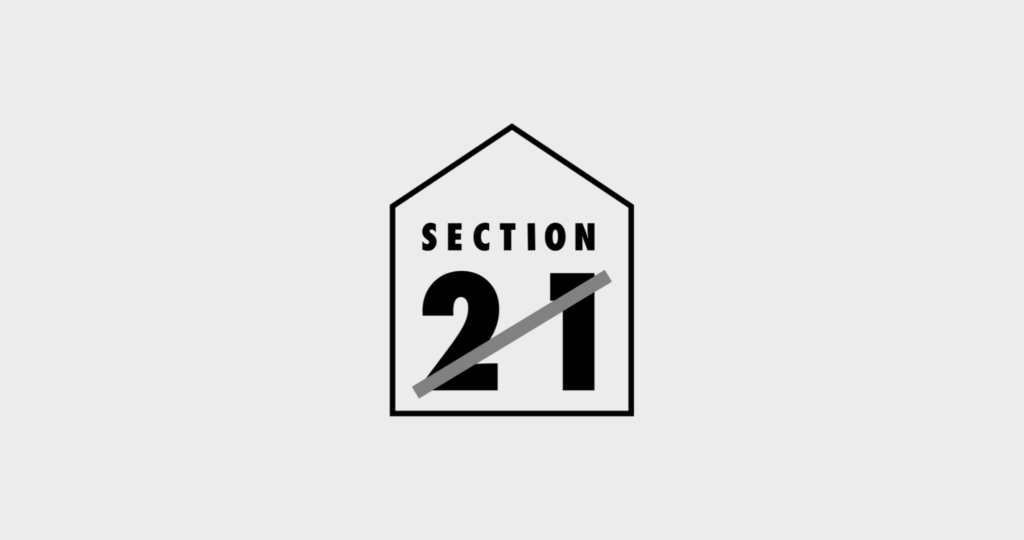By Tenants Union UK (@tenantsunionuk)
During the COVID-19 crisis the government suspended section 21 evictions. Now, under pressure from the landlord lobby, they are planning on lifting this suspension. This means hundreds of thousands of tenants will now be at risk of ‘no fault’ section 21 evictions.
We need the government to end Section 21, to protect tenants from eviction.
But in the here and now, there are a number of tricks a tenant can use to throw out a section 21 on procedural grounds. So if you get a Section 21 - don’t panic.
Landlord’s often fail to issue the notice correctly. If any of the below hold, it’s grounds for an instant throwing out of the eviction notice.
1. Deposit defence
If when you paid your deposit, your landlord didn’t protect it within 30 days of your tenancy starting, and inform you in writing, then they are unable to issue a section 21 eviction notice, unless they return it to you.
Additionally, if they did protect it within 30 days but didn’t give you the prescribed information then they can’t issue you an eviction until they have. Has your landlord provided you with clear info on where your deposit is held, how it is protected and how you get it back at the end of your tenancy? That information can be found here.
If you’re unsure whether it is protected, check on one of the three protection scheme’s websites or give them a ring. The three schemes are mydeposits.co.uk, depositprotection.com and tenancydepositsscheme.com.
2. Licence defence
If you live in a house of multiple occupancy (HMO) with 5 or more people not of the same family sharing bathrooms, kitchens or toilets, then the landlord needs a licence. If they don’t, they can’t issue a section 21.
Additionally - you might be living in an area where Selective Landlord Licensing has been brought in. If you have, then your landlord needs to be licensed, otherwise they can’t issue a section 21 either.
To check if your landlord is licensed, head over to your council website.
3. Disrepair (retaliatory cases)
If in the previous six months before the landlord issues a section 21 notice, the council served either an improvement notice or an emergency remedial notice (for disrepair) to the landlord - then the section 21 notice is invalid.
Similarly - if you have complained in writing to the landlord about disrepair, and they failed to respond and the council served a notice to them before the possession order was served, then the notice will become invalid and your landlord won’t be able to serve a valid section 21 notice.
These defences aren’t easy to make on your own though - so we’d always recommend seeking support and advice if you think this applies!
4. Missing document defence
On October 1st 2015 a new law came into force. It stipulated that at the beginning of a tenancy, a landlord has to provide the tenant with a number of essential documents. If they didn’t, then they will be unable to issue a section 21 notice. Those documents are: the ‘How to Rent’ booklet, a Gas Safety certificate, or an energy performance rating.
Check to see if you have these documents. Not having been given them could be an easy defence to a Section 21 notice!
5. Tenant Fees Act 2019 defences
If your tenancy began after June 1st 2019 you should be protected by the Tenant Fees Act. This outlawed certain charges by landlords and letting agents. If you have been charged any of these fees, and the landlord hasn’t refunded, then any section 21 is invalid.
They are
- A deposit more than 5 weeks rent
- A holding deposit of more than 1 weeks rent?
- Charges by your landlord for bills that weren’t included in your tenancy agreement (eg Gas, Electricity, TV Licence, Council Tax)?
- A fee more than £50 for a change to the tenancy agreement or new tenancy agreement?
- Interest on late rent of more than 3% over base rate.
Hopefully the above give you a quick overview of the quick defences that tenants are able to make when faced by a Section 21. Our main message would be - if you get a Section 21, don’t panic. There are a number of steps you can take. If any of these don’t make sense, always reach out to organisations who are there to support you.
At the end of the day, if we’re to rebalance the relationship between tenants and landlords to one where tenants have power, we’re going to need to get organised. The solution is collective. Join a tenants union today.
2 June 2020





